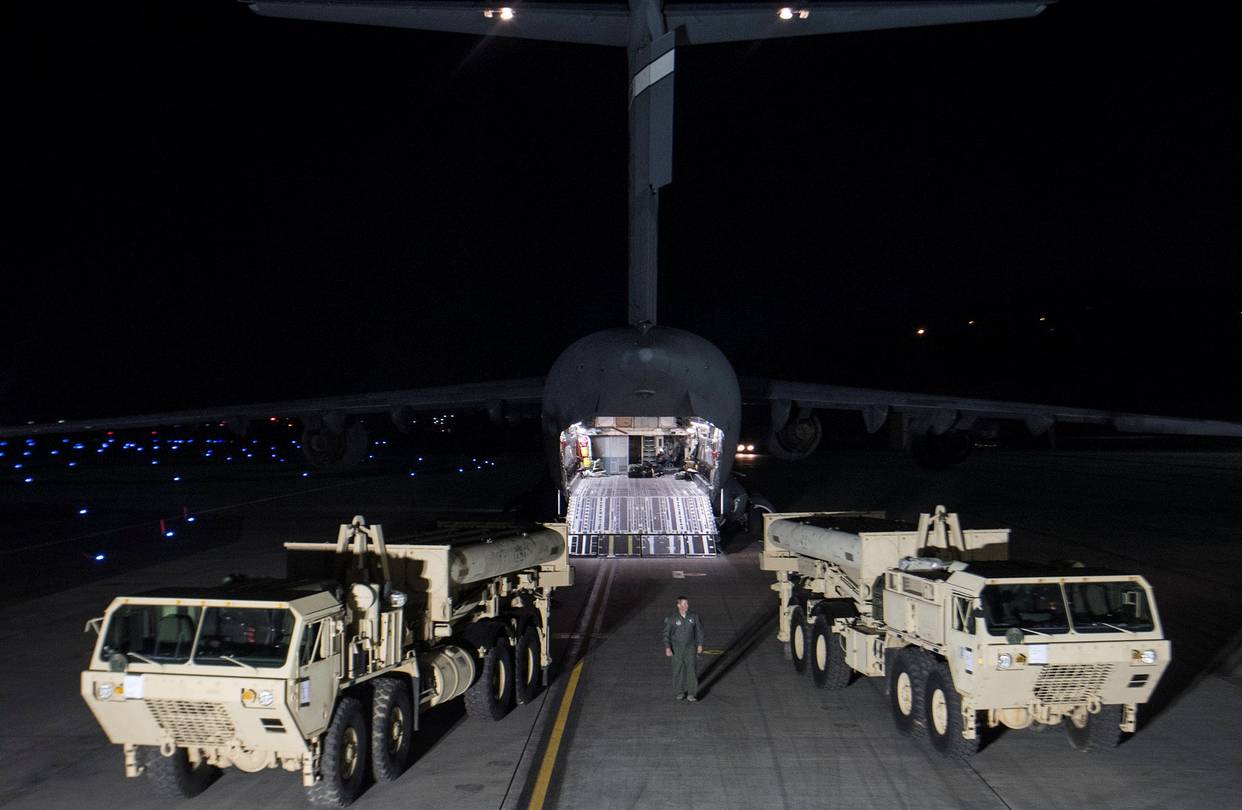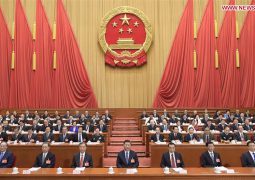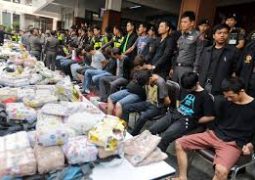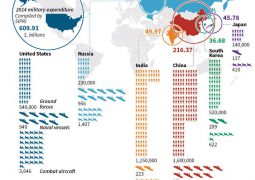To China, America Finally Looks Vulnerable Beijing’s all-out struggle over antimissile battery in South Korea sends a chilling message to U.S. allies

SHANGHAI—When Chinese leaders gaze out toward the Pacific, their panorama is obstructed by a string of military airfields, naval anchorages, radar emplacements and listening posts sentineled by U.S. forces and their allies.
Breaking through what they regard as a hostile chain of containment is a national priority.
To do so Beijing must weaken the U.S. alliance network. Can Washington hold the line?
That’s the larger question hanging over the all-out struggle that Beijing is waging to prevent the installation of a U.S. antimissile battery in South Korea, meant to protect against a North Korean nuclear attack, which took a dramatic turn last week with the removal from office of South Korean President Park Gyeun-hye.
Pyongyang may well produce Donald Trump’s first international crisis. Its nuclear menace, along with missile defense, will be high on the agenda when he holds his first meeting with his Chinese counterpart, Xi Jinping, tentatively scheduled for April in Mr. Trump’s private club in Florida, Mar-a-Lago, according to Chinese officials.
Barack Obama infuriated Beijing with his military-flavored “pivot” to Asia. To the Chinese leadership it was yet more Cold War-style gamesmanship, and to test U.S. resolve they pushed back with bullying tactics against U.S. friends and allies, for instance sending a giant oil-drilling rig into waters off Vietnam protected by a flotilla of paramilitary vessels.
As presidential candidate, Mr. Trump trashed U.S. allies in Asia as freeloaders and suggested that both South Korea and Japan should acquire their own nuclear deterrent. After the election, Defense Secretary Jim Mattis rushed to Northeast Asia to offer reassurances. Secretary of State Rex Tillerson will follow him this week.
But America’s alliance network—the legacy of a sprawling postwar empire —looks increasingly vulnerable.
China fears the antimissile system’s radar will snoop on its own missiles. If by lashing out with economic sanctions against its neighbor it manages to delay, or derail, the deployment it would weaken a critical link in a chain of U.S. security alliances that stretches from the Korean Peninsula through the Japanese islands and the Philippine archipelago all the way to Australia.
The downfall of President Park in a corruption and influence-peddling scandal, and the prospect that her likely successor will be more conciliatory toward Pyongyang, plays to Beijing’s advantage.
Moon Jae-in’s “sunshine” approach to the North is at odds with a hardening in Washington. He has also questioned the antimissile system, although it is unclear whether he would stand in its way as president amid mounting public outrage over a recent flurry of North Korean missile tests.
Not taking chances on holdups, the U.S. military has rushed the first components of the battery to South Korea.
The sense of urgency points to wider concerns about the future of the U.S.-South Korea alliance at a time when the possibility of a direct confrontation with North Korea looms larger.
For more than seven decades, U.S. armed forces have presided over a benign hegemony in Asia. After defeating Japanese fascism, they stayed on to help build prosperity from the rubble of war and fend off Communism. Douglas MacArthur, the “blue-eyed Shogun,” got Japan back on its feet.
Nowadays, the U.S. Pacific Command from Hawaii, traditionally led by a four-star Navy admiral, looks after a territory that embraces almost half of humanity and boasts a force five aircraft-carrier strike groups and some 1,500 aircraft.
China is convinced all this firepower is there to keep it down, but can’t yet match the strength. Rather, it seeks to undermine U.S. credibility and prestige by intimidating its Asian partners.
Already, the Philippines—one of the region’s weakest countries, which threw out U.S. military bases in the 1980s—is bending to Beijing’s will.
But the stakes are far higher in South Korea, an industrialized economy with a war-ready military. Effectively, China is trying to dictate the security options of a sovereign nation whose safety—and that of some 28,500 U.S. troops it hosts—is imperiled by North Korea’s rapid mastery of missile and nuclear technology.
In his book “Powerplay: The Origin of the American Alliance System in Asia,” the Georgetown University scholar Victor Cha calls the early U.S. alliance network an “informal and accidental empire.” Informal because the U.S. pulled the strings of power in member countries from behind the scenes; accidental because in the immediate aftermath of World War II, President Truman had no intention of building such an extensive network.
Truman was focused on the Soviet threat in Europe. Japan dominated his Asian calculus. Only after North Korean troops poured across the 38th parallel in 1950 did Truman decide that South Korea, as well as Taiwan, were worth defending. He would “stop those sons of bitches” in Korea, and prevent dominoes falling to Communism elsewhere.
Today, Mr. Trump’s challenge—a supreme test of statesmanship—will be to turn back an existential nuclear threat from Pyongyang, while somehow holding together a fading imperium that Mr. Xi is anxious to consign to the dustbin of history.
- Previous Deadly Foreign Conflicts Spill Onto Malaysia’s Streets
- Next Reneved fight in Phillipnes against drugs: revisited










